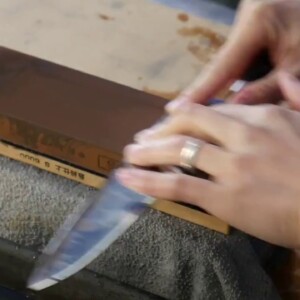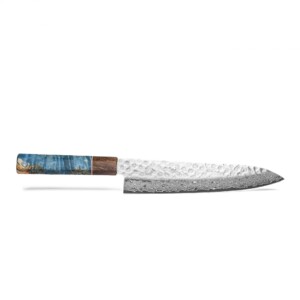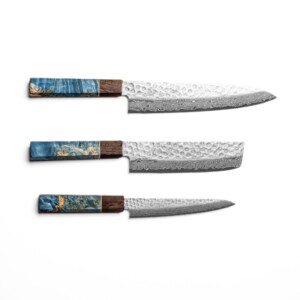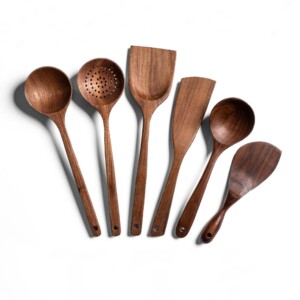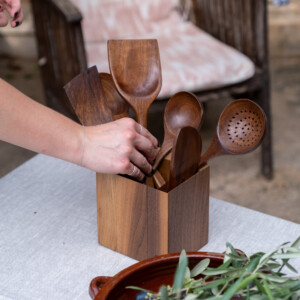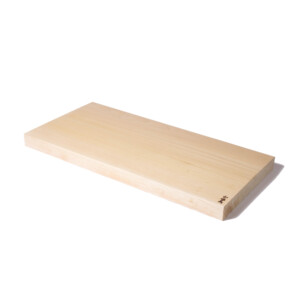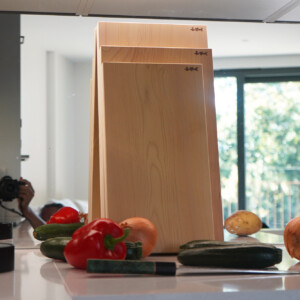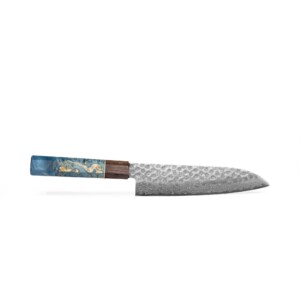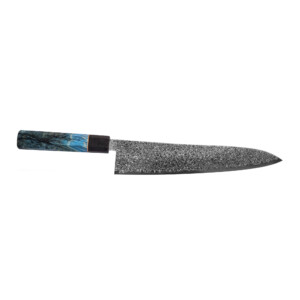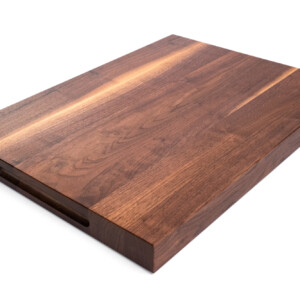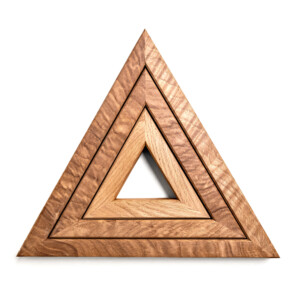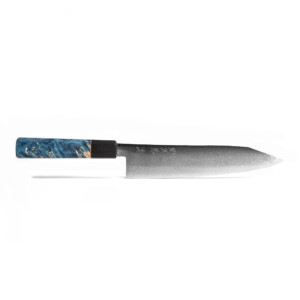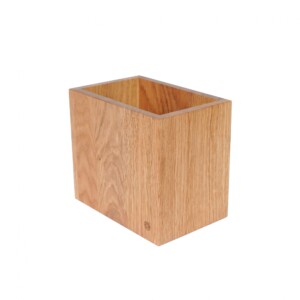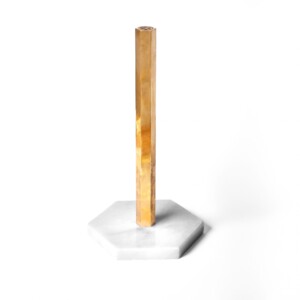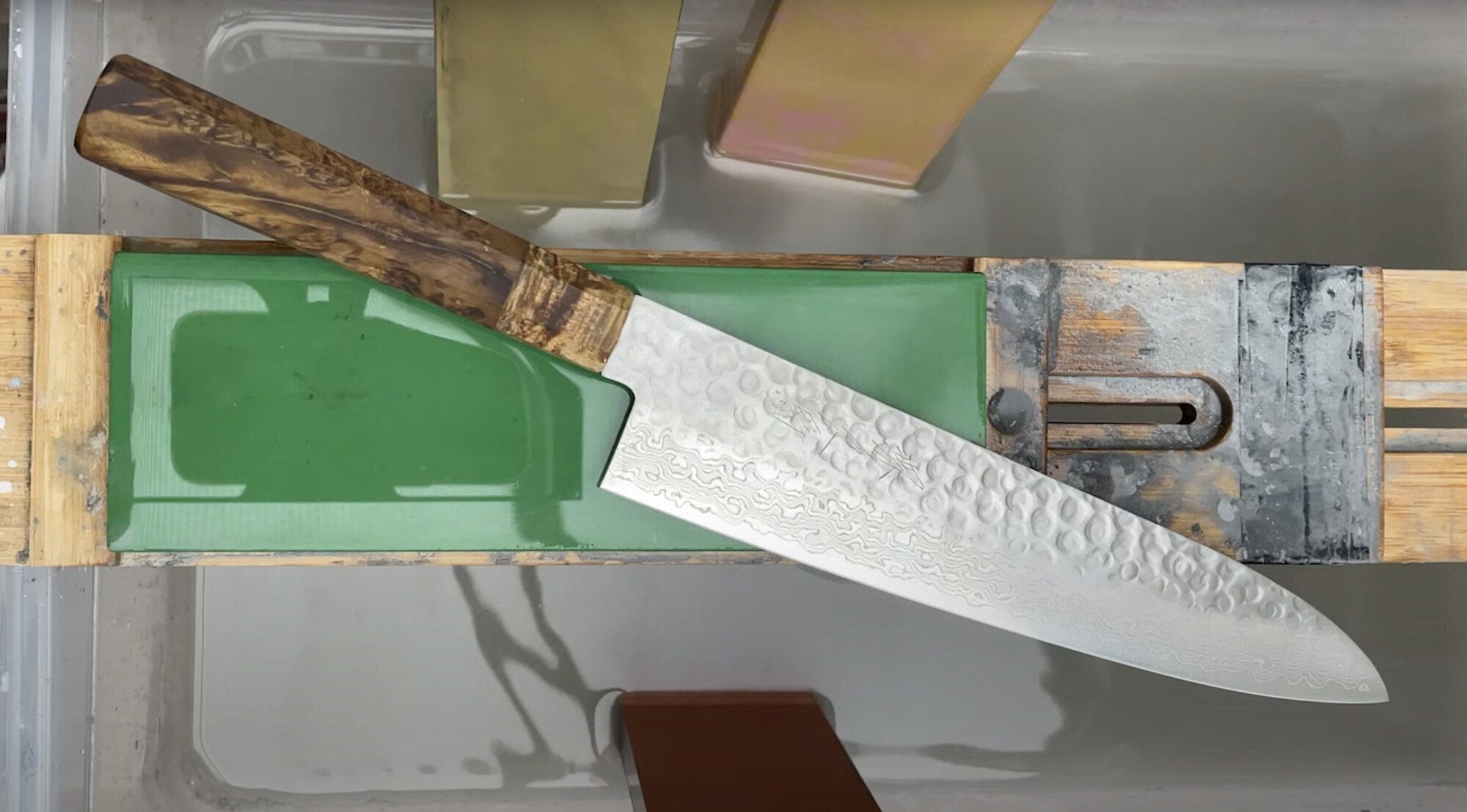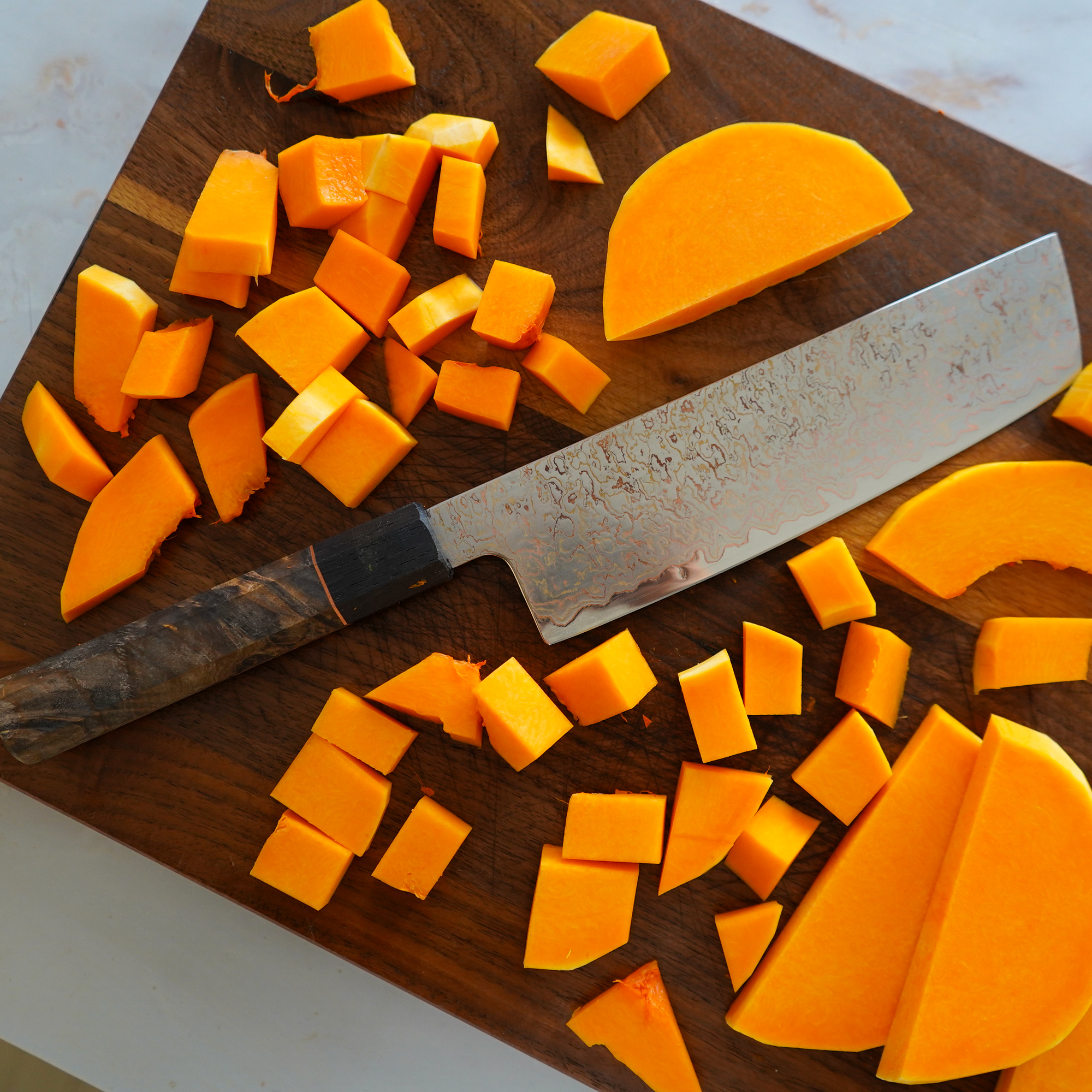In today’s article we have identified the four basic knife cuts every cook (both beginners and professionals) should know how to do:
- The slice
- The chop
- The back-slice
- The rock-chop
Before we begin, it is important to have the right knives for the job. Our Sakai Kyuba x Oishya knife set consists of three knives that will help you do almost every job in the kitchen. Now that you have a good kitchen knife set let us show you how to use it!
Using a knife properly does not mean jamming the knife like a wedge through your food. You will get much better results if you learn when it is necessary to slice or chop, how to make use of the full length of the blade, and how to make use of the force you apply to the blade. Learning all four techniques will get you from seeing kitchen work as a chore to actually enjoying it!
1: The slicing technique
This technique is used for slicing meats and large vegetables, or rough-slicing herbs with a chef’s knife. You will need to create a flat, stable surface to rest your food on. You can do this by cutting the vegetable in half or slicing off a thin section of it. This will allow you to slice without the vegetables rolling around. Once this is done, hold the food in place with your non-knife hand, curling your fingers into a claw and tucking your knuckles underneath.
You must hold the tip of the blade against the cutting board with your knife angled upwards. The flat side should rest against your knuckles. Without lifting the tip of the blade from the chopping board, pull the knife backwards slightly until the blade slides into the food. Continue this movement by pressing downwards and forwards, you should be using the full length of the blade to slice through the food. Repeat, using a circular motion, make sure the blade tip is in constant contact with the cutting board.
2: The chopping technique
The chop is used for precision cutting of herbs and vegetables using a santoku-style knife. This cut is interchangeable with the slice, it’s just a matter of which one suits you best (try them both and see which one feels more comfortable). In order for the chop to work effectively, you will need a very sharp knife- check out our blog on how to sharpen your knives and our sharpening stones.
Like in the slice technique, you will need to create a flat, stable surface to rest your food on. This is done by cutting the vegetable in half or slicing off a thin section of it. Then hold the food in place with your non-knife hand, curling your fingers into a claw and tucking your knuckles underneath.
Hold the flat side of your knife blade against your knuckles, make sure the entire knife is lifted above the cutting board. Press the knife downwards in a smooth, even stroke, shifting the knife slightly forward as you go. Lift the blade up and repeat the movement.
Quick tip: keep the knife at around the same height of your elbow to put more pressure and control into the cut, this way you can benefit from gravity and muscle weight.
3: The back-slice technique
This cut is used to create fine slices of small, delicate items like herbs with minimal crushing. Santoku or chef’s knives are ideal for this cutting technique. If you are slicing herbs, we recommend you stack the leaves and roll them up into a tight bundle. Then hold the food in place with your non-knife hand, your fingers should be curled like a claw with your knuckles tucked underneath.
Place the tip of the blade on the cutting board with the flat of the blade resting against your knuckles. Make sure you hold the knife at a very low angle, pulling backwards steadily. Use the whole length of the blade to slice the food, with no downward motion at all. Keep pulling backwards until the tip of the blade slices completely through the food.
Note that there shouldn’t be any downwards motion at all! The point is to have maximum horizontal motion (slicing) with minimum vertical motion (crushing).
4: The rock chop technique
Use this technique to mince fresh herbs, zest, or other aromatics. Firstly, cut your food using the slice or the chop method and gather it into a small pile. Then place the tip of the blade on one side of the pile, holding it in place with your non-knife hand. Rock the knife up and down until they are minced the way you want them. Note that you will occasionally need to re-gather your ingredients.
That is all: those are the four cutting techniques you should learn to master! As we said in the beginning, you’ll want to have the right tools to practice these cutting techniques. For example, we recommend the Sakai Kyuba x Oishya Chef’s knife. It is a professional chef’s knife that is great for quick cutting, it is loved for its versatility and sharpness.


